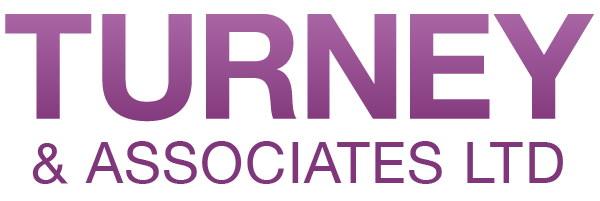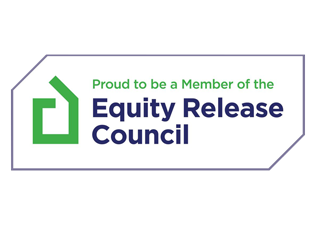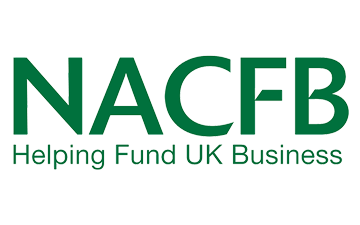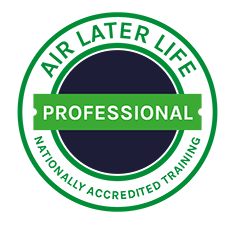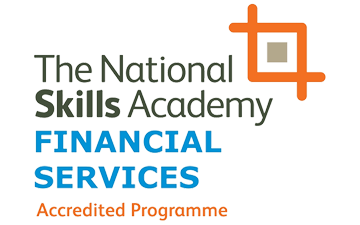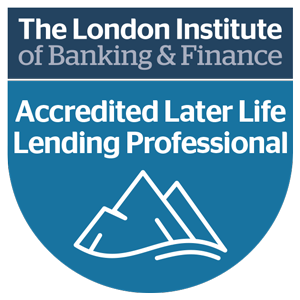A mortgage is a long-term loan secured on your home. ‘Secured’ means that, if you don’t keep up the repayments, the lender can repossess your home and sell it in order to get its money back.
You can check your report at checkmyfile.com.
Most lenders will typically offer up to four times the main earner’s income, or slightly lower multiples of joint income. Other lenders will look at ‘affordability’, basing their lending decision more on your credit history/credit score and your net pay after your regular bills and commitments. This can sometimes mean you can borrow more, but remember that you must always be sure you can afford the monthly payments.
Lenders use various methods to assess your income for the calculation above. Often this will include asking for payslips, P60’s, self-employed accounts or bank statements as evidence of your income.
Mortgages are often taken out over a ‘standard’ 25-year term, but lenders will usually allow you to borrow over a shorter or longer term. By extending the term, the payments are lower, but it will take longer to pay off your mortgage. If you are less than 25 years from retirement, you should consider a shorter term so that the mortgage is paid off before you stop work.
You should consider whether you will have sufficient income (from pension income, for example) to continue to pay your mortgage. If not, you will need to consider reducing the mortgage term (see above) to match your intended retirement. If you cannot meet your mortgage payments in retirement, you may be forced to sell your home to pay back the lender.
With every payment you make on a repayment mortgage (also called a ‘capital and interest’ mortgage) you will pay both interest on the mortgage and also pay off some of the capital. Provided you maintain all of your payments over the term of the mortgage, this type of mortgage is guaranteed to be paid off at the end of the term.
With every payment to an interest-only mortgage, you pay only the interest. This means that at the end of the mortgage term you will still owe the full amount that you originally borrowed. You will need to have enough money at the end of the mortgage term to pay off the whole amount. This may be from regular savings (for example to a Building Society account, ISA or an endowment) or from investments (such as sale of a second investment property).
There is no guarantee with an interest-only mortgage that the value of your savings and investments will be sufficient to repay your mortgage and this is therefore considered a ‘higher risk’ mortgage.
If you cannot pay off your mortgage at the end of the term, the lender can repossess your home and sell it to repay the debt.
Most mortgage allow the facility to make overpayments of up to 10% of the capital during each calendar year. If it is your intention to sell your property within a couple of years, please bear in mind any early repayment charges (see – What happens if I want to close my mortgage before the end of the term – below)
If you repay your mortgage before the end of the term, there may be a charge payable to the lender, called an ‘early repayment charge’. The highest charges are usually in the early years of the mortgage, typically tied in to the same period as the initial ‘special’ rate (fixed, discount etc), but sometimes extending beyond this. Where the charge extends beyond the initial period it is called an ‘overhang’. The early repayment charge varies between lenders and products but is typically between 1% – 7% of the total mortgage amount borrowed for 1 – 10 years. Thus for a £100,000 mortgage there could be an early repayment charge of up to £7,000!
Clearly if you intend to repay your mortgage in the early years it is important to choose a mortgage with low or nil early repayment charges.
Some mortgages are portable – this means that if you move house, you can take your current mortgage to your new home (called ‘Porting’), often for little or no cost. The lender may require additional proof of income or credit status at the time of porting your mortgage, so if your circumstances have changed or you require a substantially different mortgage amount, you may no longer fit that lender’s criteria and a new lender may be your only option.
Many lenders will allow you to add some or all of the re/mortgage costs to the amount borrowed, including application fees, broker fees and sometimes legal and valuation costs. This is often a very useful feature if you want to keep the up-front costs as low as possible. You should be aware, though, that by adding fees to the loan, you will pay interest on them for the full term of the mortgage, increasing the total amount you pay. If you can afford to pay the fees from your own savings, it is likely to save you money in the long run.
A fee of £495 is payable upon completion of your mortgage; we will also be paid commission by the lender. If you prefer a fee only option, we charge 7% of the loan amount, payable on completion of the mortgage; any commission paid by the lender will be forwarded to you.
A fee of £895 for Equity Release Loans is payable upon completion of your mortgage; we will also be paid commission by the lender. If you prefer a fee only option, we charge 4% of the loan amount, payable on completion of the mortgage; any commission paid by the lender will be forwarded to you.
The lender needs to ensure that your estimate of the value of the house is correct because their lending is secured on your home. You will normally have to pay for this valuation to be conducted.
There are three types:
a) A mortgage valuation
This is a very simple inspection of the property and is the minimum requirement for a mortgage. It will involve a very limited inspection of the property and is not in any way a survey. It just provides confirmation to the lender that the property is worth enough to cover the mortgage.
If you have instructed a survey independently of your mortgage application, most lenders will expect you to pay for a mortgage valuation with their own Valuer/Surveyor as this is the minimum valuation requirement.
For a remortgage, this is the only valuation option. Often the lender’s Valuer is happy to conduct a ‘drive by’ valuation without entering the property.
b) A homebuyer’s survey and valuation
This is suitable for a standard property type which is not very old and will advise on value as well as giving a more detailed report on the condition and state of repair of the property. Minor items of disrepair that are aesthetic and do not materially affect the value, will not be reported.
c) A building survey
This is a very comprehensive survey of all parts of the property. Advice on the value of the property is not included. This type of survey may be more appropriate for larger, older properties or non-standard buildings or buildings of a commercial nature. This survey is the most expensive of all three types of survey.
It is up to you which type of survey you feel happiest with but you should remember that the risk is solely yours when buying a property. For this reason it is strongly recommended to have a homebuyer’s valuation and survey undertaken as a minimum.
Where the lender’s surveyor finds defects at the property, ultimately it will become a condition of the mortgage offer that the defects are rectified quickly by whoever has agreed to complete the works, the vendor or buyer. Sometimes the lender may even retain part of the loan until the works have been completed with proof.
Your credit report will list credit history details about you over the previous 6 years, such as mortgages, unsecured debt – credit cards, loans, car finance, overdrafts, mobile phone contracts and utility contracts, such as gas & electricity. In addition, your credit report will give details of your payment history for this credit agreements. The most widely used credit report checking agencies that lenders use are Equifax and Experian, although there are other agencies available. By allowing lender to view details on your credit report, they can build a profile of what you are generally like as a borrower and the level of your available credit.
You can check your report at checkmyfile.com.
We can usually still help even if you have an adverse credit history. Impaired credit could be a result of many factors and consequently lenders tend to make their judgment based on the specific details for each case.
a) Variable rate – your monthly repayments will vary as & when your lender’s standard variable rate (SVR) changes.
b) Fixed rate – your monthly repayments will be fixed for as long as the interest rate is fixed.
c) Discounted rate – your monthly repayments will vary as & when your lender’s standard variable rate (SVR) changes, but will remain lower than repayments on a variable rate mortgage.
d) Tracker – your monthly repayments will vary according to either the Bank of England base rate or London Inter-Bank Offered Rate (LIBOR) for set period of time, or can be for the lifetime of the mortgage.
The different types of mortgage interest rates are listed above. Most borrowers prefer to fix the interest rate for a period of time, so they know what their outgoings will be. The period of time chosen will depend on how you see your personal circumstances. For example, if you know that your circumstances may change or that you wish to pay off some or all of your mortgage or move house, it is important not to be tied in for too long a period. The usual options are 2 years, 3 years, 5 years, 7 years and 10 years but these vary from lender to lender.
If your circumstances were to change during the specific tied-in period, it may result in you having to pay early repayment charges.
Loan to value, or LTV, is a calculation which expresses the value of your mortgage as a percentage of the value of your property: loan / value x 100 = LTV %
The LTV is important, because across the mortgage market, lower interest rates tend to be offered to those with lower LTVs, for example less than 60%.
Offers are subject to individual circumstances. You will be asked to prove your income with either certified accounts or if you file your own accounts, a copy of a HMRC’s SA302 and Tax Year Overview documents. Lenders usually use a self employed applicant’s net income for their income multiples.
No. The lack of regulation in this market led to all kinds of shady practices which eventually led the Financial Conduct Authority (FCA) to ban self-certification of income.
In the current mortgage market, lenders will want to see a copy of the applicant’s certified accounts or if they file their own accounts, a copy of the HMRC website Tax Payable and the Tax Computation prepared by their accountant. Usually lenders wish to see the previous 3 years. The figure that lenders usually use the ‘net income’ figure which is clearly shown on the HMRC document.
Your annual Tax Payable information is available from the HMRC’s website.
Yes. Stipend income is usually paid to those working towards a PhD or completing research for a university. There are a number of lenders which will lend to PhD students earning a stipend income, providing they are purchasing a property jointly with another applicant who does not earn a stipend income, i.e. is employed and in receipt of a salary.
Lenders usually request a Letter of Confirmation from the payer (e.g. university) to show the applicant’s name and the monetary value of the stipend allowance to support a mortgage application.
Equity release is a way of getting cash from your home, whilst you remain living there. The value or equity you have in your home is its open market value less any mortgage or other debt secured against it. Although the value of houses has risen over the years, selling up or moving somewhere cheaper to raise extra funds may not be for everyone and this is where Equity Release schemes can help. You need to be over 55 and own your own home. You can get a cash lump sum, with or without a drawdown facility to use as you wish, or roll-up the interest with no monthly payments for the balance to be repaid at a later date. Equity Release allows you to continue to live in your own home.
An Offset Mortgage works by ‘offsetting’ a mortgage borrower’s savings against what they owe on their mortgage, which has the effect of reducing the overall amount of interest that they pay.
For example: A Borrower has a £100,000 mortgage and also has £20,000 in savings with the same banking institution.
With an offset mortgage the borrower will only pay interest on £80,000 which means they may be able to pay off their mortgage more quickly.
It is possible to link a child’s mortgage to their parents’ or other relatives’ savings. The savings can still be held in the parents’/relative’s name(s) and used by them in the normal way.
Most lenders offer the option to borrow more money against the security of your home.
If your existing fixed interest rate mortgage is midway through its term, you might not want to pay any Early Repayment Charges, so a Further Advance might be an option for you. We can research the market for you, to see if it is to your benefit to take a Further Advance from your existing lender, or whether a remortgage to a new lender might be more cost-effective for you.
In the final months of your current fixed or discounted rate, it is time to contact us here at Turney & Associates to avoid paying your existing lender’s standard variable rate for your Residential or Buy-to-Let mortgage(s).
We would be pleased to discuss your current mortgage requirements with you. We will research the market to find you the most competitive interest rate available, which might enable you to reduce your monthly mortgage payments.
Visit the government’s website for the current rates of stamp duty: https://www.gov.uk/stamp-duty-land-tax/overview
No, they are different: residential mortgages cannot be used to purchase Buy-to-Let properties, and vice versa.
There are specific Buy-to-Let mortgage products available from a number of lenders. Some will look at the borrower’s financial circumstances before agreeing to lend. Others will lend on the rental income alone, but they usually require that the rental income is at least 125% of the mortgage repayment, e.g. if the repayment is £800 then the minimum rental income would need to be £1,000 per month.
Yes it is possible to have a mortgage secured onto a property through a Limited Company name for tax efficiency purposes.
Yes, it is compulsory to have buildings insurance on your property in case of unforeseen damage or destruction if you wish to secure a mortgage on it. Your Solicitor may ask to see a copy of your buildings insurance policy to check against your lender’s Valuation Report to make sure that the policy offers sufficient rebuilding cover. When buying a new property, you must have buildings cover in force from the day contracts are exchanged.
Turney & Associates can arrange buildings insurance for residential and buy-to-let properties with the option to add cover for contents.
The minimum deposit is usually 20%.
The best way to explain a Let to Buy mortgage is using an example case.
Mr & Mrs Smith are living in a property that they currently own, with a mortgage. They would like to buy a new property to be their home and to rent out their current property to tenants. Their residential mortgage would no longer be appropriate, so they would need to remortgage their home as a rental property, using what is called a Let to Buy mortgage.
This funds from this Let to Buy remortgage could be used as a deposit to purchase their new home and (if needed) a new residential mortgage would be taken out to complete the purchase, secured on their new home.
The main difference between Let to Buy and Buy to Let remortgages is that with the former the property that the mortgage is secured on was the client’s residential home that they lived in; a Buy to Let remortgage is when a client wishes to refinance a rental property they already own.
No. An HMO mortgage is a type of mortgage specifically for landlords who want to rent out their property to more than three tenants who aren’t from one household. These mortgages have some key differences, such as lenders only considering experienced landlords, and maximum LTV ratios typically between 60-75%. Some lenders will also have requirements about the property itself.
A mortgage broker can help you navigate all the various restrictions & conditions to help you find a willing lender.
Yes, although the pool of lenders which offer mortgages to applicants whose main source of income is from property letting is limited.
We offer a fast quotation service to get your purchase and/or sale moving as quickly as possible. We have access to over 200 solicitors around the country all individually rated by past clients. There is never a charge if your sale or purchase does not complete.
When you buy a freehold property, you own the building and the land it’s on until you decide to sell it (though of course your mortgage company could still repossess it if you don’t keep up repayments). This kind of total ownership is known as ‘title absolute’.
If you buy a leasehold property, you only own the building (not the land it’s on) and only for a specified number of years. When the term of the lease expires, the property will belong to the landowner unless you can extend the lease. Bluntly, this means that however much money you paid for the property, you would lose it all if the lease were to run out. Although in practice this doesn’t often happen, it’s a risk that hangs over all owners of leasehold properties.
For leasehold properties, mostly flats, apartments and maisonettes, a short lease can make finding a mortgage for the property more difficult: a term of less than 60 years is deemed short. As a rule, shorter leases can negatively affect the value of a property as it may be entirely unmortgagable and therefore can only be purchased in cash.
By law, you are entitled to extend your lease for a further 90 years. In addition to the 90 years, a formal lease extension reduces the ground rent to a ‘peppercorn’ rent, meaning that no ground rent is paid. To proceed down the formal (also called statutory) route a leaseholder must have been listed at the Land Registry as the registered owner of the property for at least two years. With this route there is no need to seek the consent of the mortgage lender.
Unlike the two-year ownership rule that exists for formal lease extensions, a leaseholder can approach their freeholder for an informal lease extension at any time, but if there is a mortgage over the property, then the leaseholder will need to seek consent from their lender, which incurs additional costs.
The term of the lease will be a factor for lenders considering both mortgage applications (to purchase) and remortgage applications (to borrow more money or move to a new lender offering a lower interest rate).
If you meet certain criteria, you will be eligible to purchase your council home. The current economic climate can make this an attractive proposition for certain council house tenants.
Shared Ownership allows you to part-buy and part-rent your home from a housing association. The share of the property you purchase is usually between 25% and 75% (a mortgage can be secured on this percentage of the property) and you rent the remaining share from the housing association. It is possible to increase your share of the property until you own the entire the property (with or without a mortgage). This process is called ‘staircasing’.
The new Help to Buy: Equity Loan scheme was launched on 1 April 2021. It is for first-time buyers and includes regional property price limits to ensure the scheme reaches people who need it most; it will run until March 2023. As with the previous scheme, the government will lend homebuyers up to 20% of the cost of a newly built home, and up to 40% in London.
The aim of the scheme is to help first-time homebuyers into home ownership who are unable to access affordable loan to value mortgages due to having insufficient deposit. They are limited to purchasing a new build home from a Help to Buy registered homebuilder.
If you are considering building your own home, renovating or converting an existing property, we can source suitable finance for your project based upon your specific requirements.
